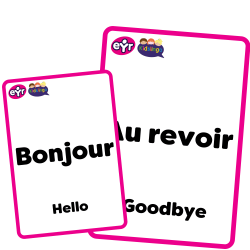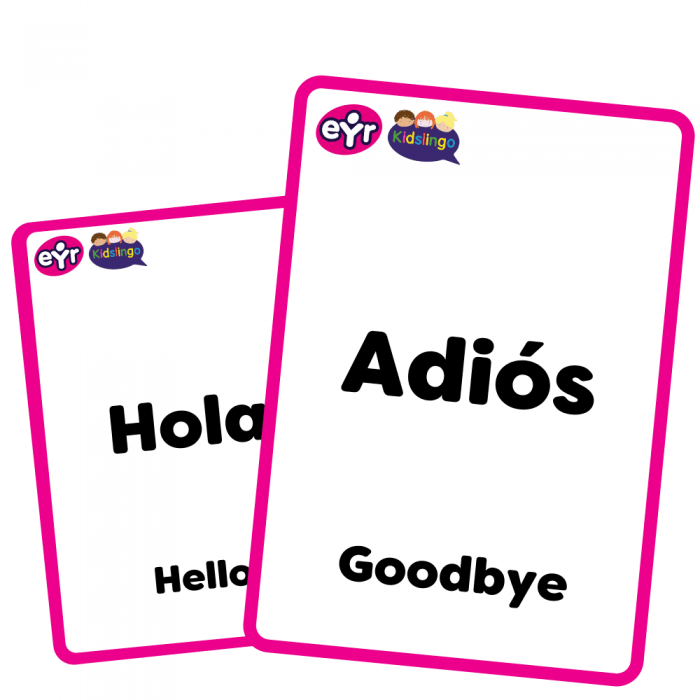
In England, learning a foreign language is statutory from the ages of 7-14. Before this, there is no compulsory requirement for children to learn another language and the uptake of older children continuing to study a language at GCSE level is in a constant decline.
However, enrolling children in extra-curricular classes and hiring private tutors in foreign languages has become an increasing trend in recent years. Many parents have made a bid to start their children learning in the Early Years as well, which will not only give them an advantage when they begin classes in school but also, help boost and develop various skills such as speech and memory.
In preparation for the European Day of Languages (26th September) – a day that celebrates both cultural and linguistic diversity within Europe as well as promotes language learning – we have teamed up with Kidslingo founder and CEO Anna Neville. In this blog, Anna shares her top tips on getting your little ones into languages and offers further insight into the benefits.
To learn more about Anna and Kidslingo, visit her website.
Why start your child off with languages at a young age?
The answer is simple – because it is absolutely the best time to do it. Babies and young children are at a distinct advantage as the brain’s plasticity is far greater, leading to an increased capability to learn languages. We always talk about little ones being ‘sponges’ but when it comes to language development – this is an incredibly accurate description.
Early childhood is the most rapid period of development in a human’s life and the key time to start language learning. It is the optimum time to stimulate children into reaching their fullest potential.
Extensive research shows the more mental stimulation a child gets between the ages of two to four, the more developed the parts of their brains dedicated to language and cognition will be in the decades ahead.
Key benefits to language learning
There are so many proven educational and life benefits to learning a second language and starting children off with languages from an early age provides enormous advantages in the short and long term. These benefits include:
• increased problem-solving and decision-making skills
• heightened ability to focus on a critical task, while ignoring irrelevant information
• boost to confidence and natural creativity
• improved language development in English
• increased world and cultural awareness
As well as the ‘scientifically researched’ benefits, at Kidslingo we receive feedback from parents every day about the benefits they see with their own children. We hear multiple stories of improvements with speech difficulties, self-esteem, and confidence levels.
Top tips for fun and effective language learning
Language learning should fuel curiosity and foster creativity. The best way to achieve this is to make learning fun! Very simply – when little ones enjoy and love what they do, it becomes a natural, spontaneous, and organic activity.
It is vital to use the right tools and activities to capture imaginations and inspire them to love languages. Language learning shouldn’t be viewed as separate from everyday play – it can be seamlessly integrated into activities in what we call ‘stealth learning’. At Kidslingo – children learn without even realising they are doing so.
Simple activities to stimulate language development:
• using the language whilst counting with your little one as you go up the stairs
• pointing out different colours during every day play activities
• discussing vocabulary on a park walk
• talking about ingredients whilst making biscuits
• watching a favourite TV show with different language settings
• listening to songs (see here for Kidslingo’s music downloads)
There is huge scope for language learning in the native tongue or any other additional language with early years’ resources, for example, many colour and number resources can be used to learn and practice a new language. Resources such as the Touch and Feel puzzles or Heads and Tails activities allow children to practice simple vocabulary such as animal names whilst being absorbed in a fun everyday activity. With the help of Anna, we have also created FREE French and Spanish downloadable flashcards aimed at both children and adults to improve language development with basic words, phrases and numbers, with our own Mandarin Chinese flashcards available as well.
Click to Download our French and Spanish Language Flashcards
In summary, with so many educational and life benefits, it’s easy to see why foreign languages are becoming so widely recognised as a key part of early years education. To discover more about early language lessons and Kidslingo please visit their website.
The multi-award-winning and CAA gold-accredited Kidslingo has 120 franchisees and specialist Spanish and French tutors across the UK and online who are dedicated to teaching and inspiring young children from birth to 11 years. Their fun and interactive classes teach 15,000 children a week.




